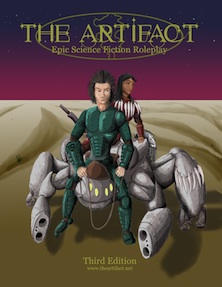Cringe! That phrase is probably the most frightful thing a game designer can be cornered with. On the one hand, it’s your game, and you want to reward the player’s enthusiasm for your game. On the other, your brain is screaming “Dull! Boring! Painful!”.
Why is this? Where is the player’s enthusiasm for the thing they’ve built, failing to come out as an interesting story? You have people that pride themselves in complex back stories and acting out what their character would do, telling a painfully dull explanation of their character.
Maybe it’s because we’re given tools for playing the games but we’re not given tools to tell people about them. Lets look at some examples of other story telling that is boring and see what it teaches us.
“Mary Sue” is a label given to a character that is good at everything. A Mary Sue is often seen in fanfic writing where an enthusiastic fan is writing about their favorite character. The beloved character overcomes every obstacle with ease, nothing can stop them. Mary Sue characters are boring. Any enjoyment from a story featuring such a character is purely on the part of the writer.
A lot of player characters are Mary Sues. At least their player is trying to make them into one. At one time, most of us tried to build an uber character that would beat everything in their path. It can be an interesting goal, it can be highly rewarding to reach toward. Once a character gets to that point, they usually get retired. Why? They’re no longer fun to play. They’re not making an interesting story anymore.
What do we learn from this? Telling about all the monsters you can beat and all the toys you have is dull. Telling me about your “fascinating” back story is usually an exercise in Mary Sue character building.
Why does this fail? After some examination, “legitimate” characters might seem like they fall into this category.
It’s not the skill of a character that’s interesting. It’s the challenges they face. But the challenges don’t usually get written down on the character sheet. It’s the GM that comes up with challenges. People will much more often listen to a GM’s tale of the games they’re running or even the plots they’re concocting, than listen to a character’s back story.
The second area that players run into when telling about their characters is they focus too much on stats and possessions. Do you want to read a book full of measurements of Mount Rushmore, or would you rather hear a story about the faces carved into the rock, why they’re important, and the great effort that it took to do the work and the current efforts to preserve it? Obviously it’s the latter.
Why? Stats tell a story but a good story, shows. There’s a huge difference in telling the story and making the listener feel like they’re in the middle of it. Showing them what it’s like to be there. Yes, on occasion a stat may be important but they’re rare, often one time thing and they should be connected to a story the tells the listener what it would be like to have such a good stat.
Early players frequently obsess about stats, but stats enable great things to happen. They aren’t great things happening.
These are two of the reasons that “Let me tell you about my character” fails. Next, let’s see if there’s a good way to share a character with others and make it interesting.


 The Free RPG Blog
The Free RPG Blog